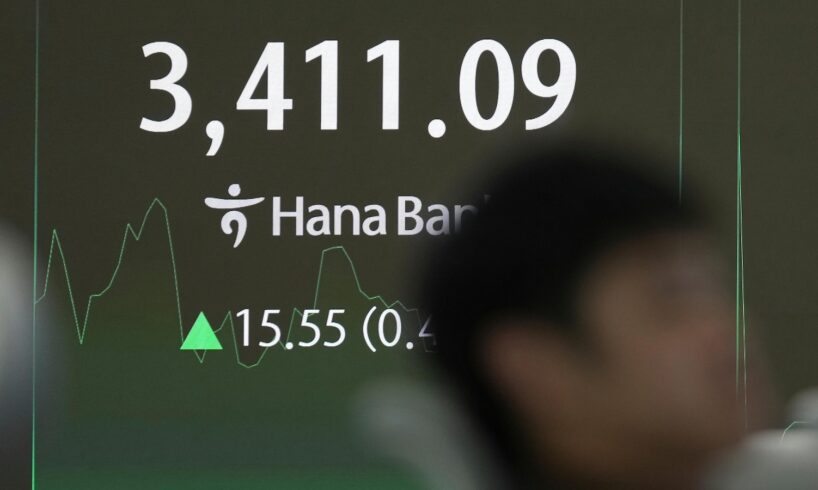
Wall Street inched a tad higher early Monday as markets look ahead to what most expect will be an interest rate cut by the U.S. Federal Reserve later this week.
Futures for the S&P 500 and Dow Jones industrials each ticked up 0.2% before the bell, while futures for the Nasdaq were up just 0.1%.
Nvidia dipped 1.5% in premarket after China accused the company of violating the country’s antimonopoly laws. China said it would step up scrutiny of the world’s leading chipmaker, escalating tensions with Washington as the two countries hold trade talks this week.
Chinese regulators said a preliminary investigation found that Nvidia didn’t comply with conditions imposed for its $6.9 billion purchase of Mellanox Technologies, a network and data transmission company. The one-sentence statement from Chinese regulators didn’t mention punishment, but said it would carry out “further investigation.”
Tesla shares climbed 8.5% after CEO Elon Musk disclosed the purchase of more than 2.5 million shares worth approximately $1 billion.
Musk purchased various amounts of shares at different prices on Friday, according to a regulatory filing. Markets tend to view such insider purchases as the confidence in the company’s future.
With earnings season effectively wrapped up, investors are looking ahead to Wednesday, when the Federal Reserve is widely expected to cut its benchmark interest rate for the first time this year, despite inflation that remains above the central bank’s 2% target.
Even as prices remain high, Fed officials have publicly acknowledged that a slowing labor market is now their biggest concern. That’s what is primarily driving market optimism for a rate cut this week.
The central bank will also release its quarterly economic projections Wednesday, and economists forecast that they will show one or two additional cuts this year followed by several more next year.
Also coming this week is the latest government data on retail sales, which will give a glimpse into whether Americans are still spending freely against the headwinds of still-elevated inflation and a weakening job market..
Elsewhere, in Europe at midday, France’s CAC 40 jumped 1.2%, while the German DAX gained 0.5%. Britain’s FTSE 100 was unchanged.
In Asia, Hong Kong’s Hang Seng added 0.2% to 26,446.56. The Shanghai Composite edged down 0.3% to 3,860.50.
Worries are simmering about China’s economy, as analysts say the data for August aren’t strong enough to reflect ongoing dynamic growth, especially given the damage from U.S. President Donald Trump’s tariff policies.
“China’s economy continued to slide in August, with all key activity readings falling short of market forecasts once more,” Lynn Song of ING Economics said in a report.
“Given the slowdown of the past few months, we expect that there’s a strong case for additional short-term stimulus efforts,”
China’s industrial production grew 5.2%, a 12-month low that was down from 5.7% in July and 6.8% in June. Retail sales rose 3.4%, the slowest pace since last November.
“The underlying flow is shifting. For years, Beijing leaned on exports as the carry trade that kept growth rolling even as property cracked. But with Trump’s tariffs slicing through supply chains, that leg of the trade is gone,” said Stephen Innes, managing partner at SPI Asset Management.
Australia’s S&P/ASX 200 lost 0.1% to 8,853.00, while South Korea’s Kospi gained 0.4% to 3,407.31. Stock trading was closed Monday for a national holiday in Japan.
___
Associated Press writer Ken Moritsugu in Beijing contributed to this report.





